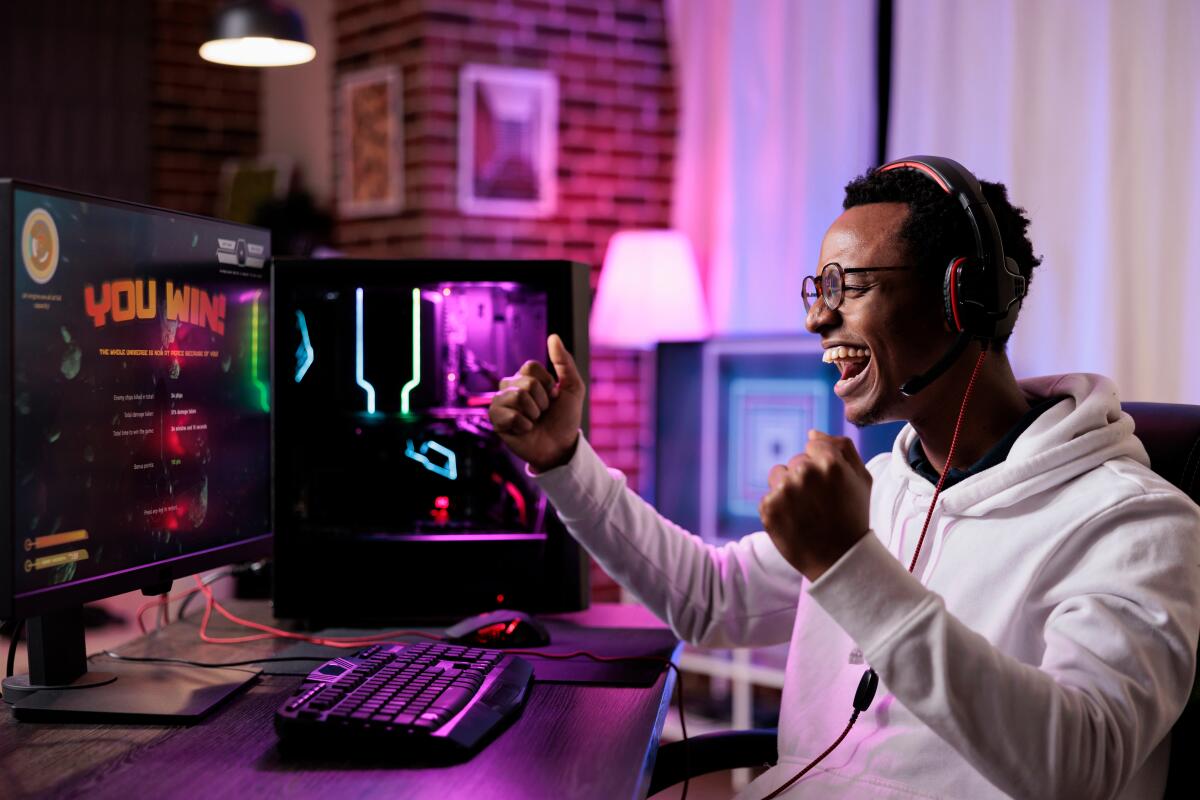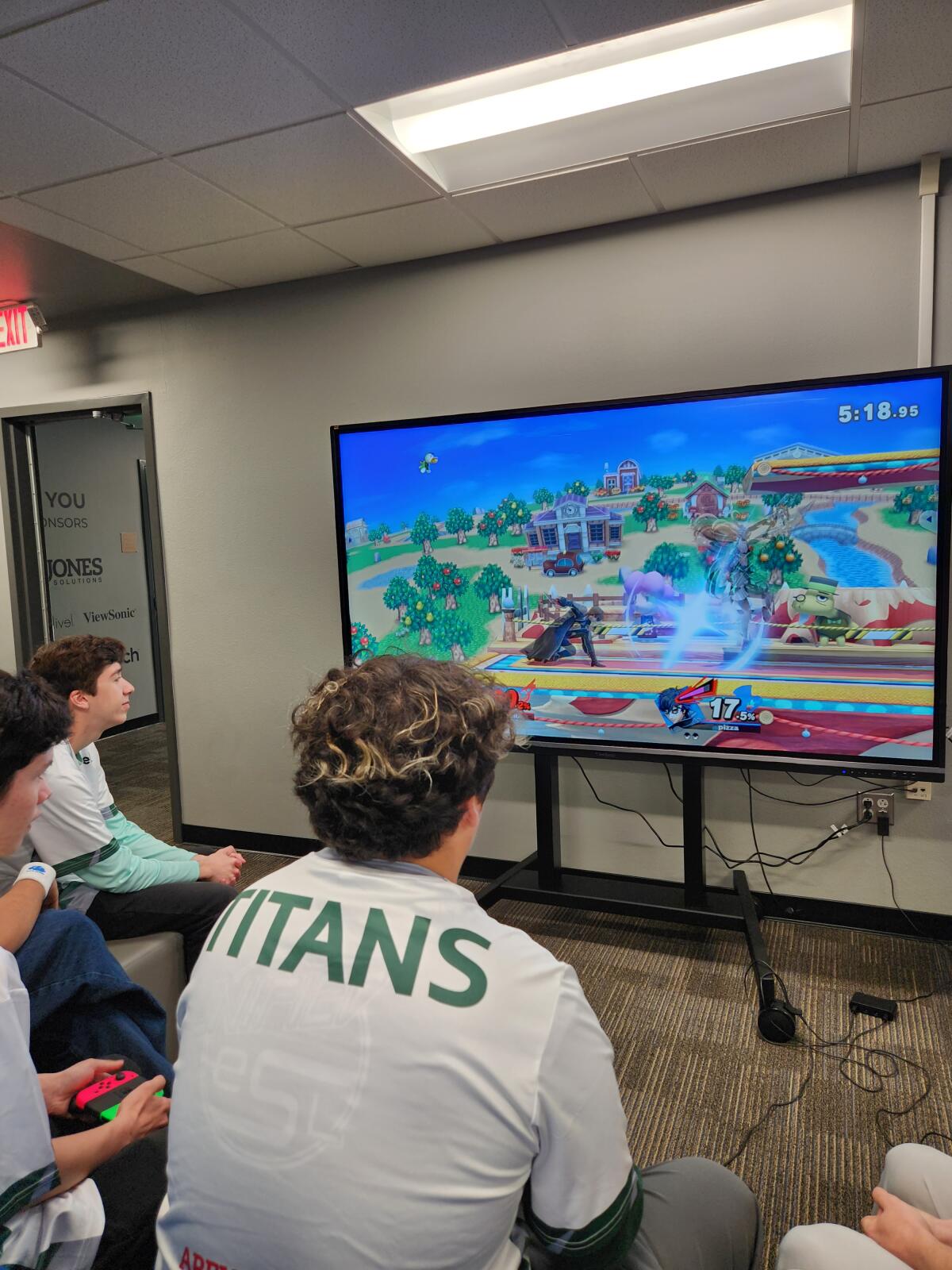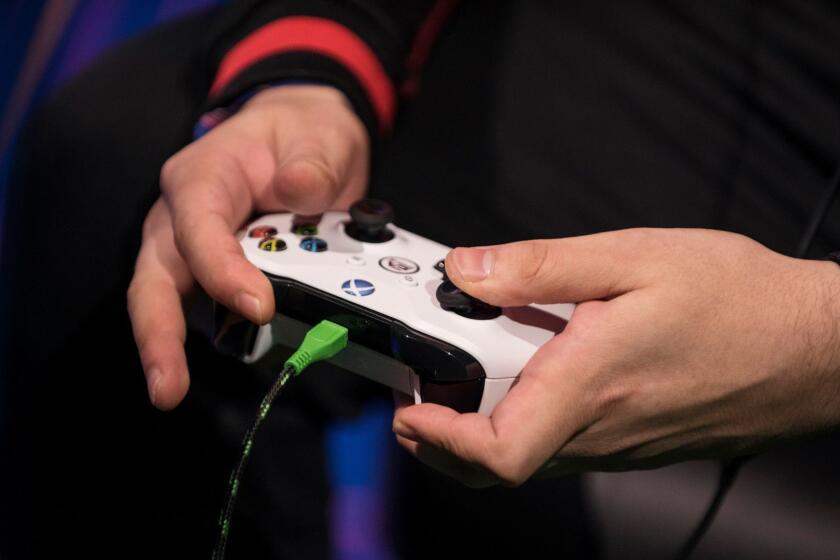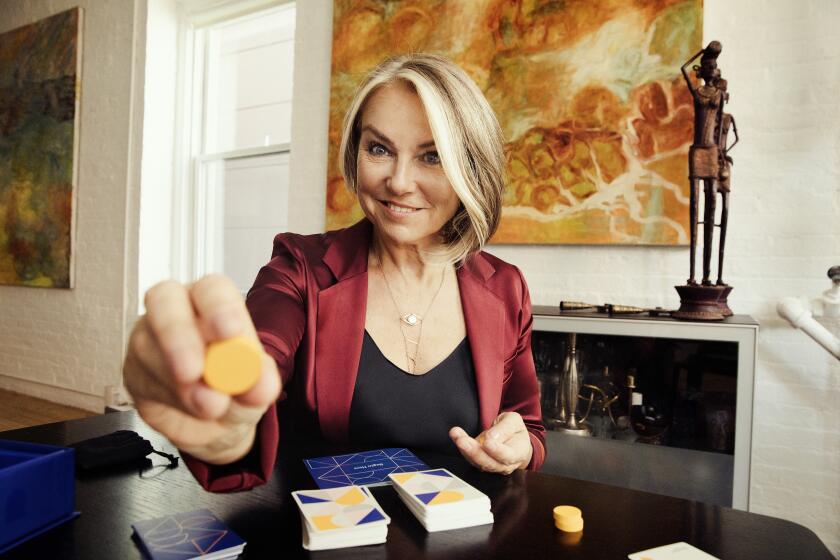How a dire shortage of video game consoles helped prove that gaming boosts mental health

In the early days of the COVID lockdown, Hiroyuki Egami was desperate to get his hands on a Nintendo Switch.
He already had one of the handheld game devices, but he also had two sons who were old enough to fight over it. The only way to maintain the peace in his family’s Tokyo home was to acquire a second unit.
So many parents had the same idea that stores in Japan quickly sold out. When the gaming consoles were back in stock, retailers held lotteries to ensure that everyone who wanted to buy one had an equal chance to do so.
Egami, an economist at Nihon University in Tokyo, quickly recognized that the lottery system could double as a natural experiment and shed light on a question that had been on his mind for years: Are video games actually detrimental to players’ mental health?
“People usually say that video games are harmful and you should decrease the time your children are playing,” he said. “As a father, I’ve been wondering whether it’s true.”
And as a researcher, he said, he felt “a kind of responsibility” to examine the evidence.
Not long before, the World Health Organization stirred up controversy by adding a condition called gaming disorder to the International Classification of Diseases. The ailment describes people who are so consumed by video games that they’re unable to control their playing behavior — even when it puts their health, their relationships with family and friends, and their livelihoods in jeopardy.
The World Health Organization has made it official: digital games can be addictive, and those addicted to them need help.
The WHO’s action reinforced long-standing views that video games are dangerous. Yet market researchers estimate that more than 3 billion people around the world play video games, a figure that’s been growing steadily for years.
And while titles like “Grand Theft Auto” and “Call of Duty” regularly make the bestseller list, so do family-friendly ones like “Minecraft,” “Animal Crossing,” “Madden NFL” and “Mario Kart 8.”

“Parents should know” whether gaming is truly hazardous, Egami said. “Parents shouldn’t feel too much pressure which is not rational.”
Studies linking gaming to aggression, addiction, cognitive function and general well-being have produced inconclusive results. One reason is that it’s hard to tell, for instance, whether game play itself makes people feel isolated, or whether people who are isolated tend to gravitate toward video games.
The way to tease out cause and effect is to take a group of people and randomly assign some of them to play video games while keeping others game-free to serve as controls. If differences emerge between the otherwise similar cohorts, they may be attributed to the games.
But experiments like these don’t reflect the way people play video games in real life, Egami said. They typically ask college students to play a video game in a laboratory at an appointed time — a study design that, while practical, limits the value of the findings.
That’s why Egami seized upon the video game lotteries. By randomly selecting some would-be gamers to purchase consoles while leaving others empty-handed, retailers unwittingly had set up the equivalent of a clinical trial.
Egami swung into action. He designed a questionnaire and got it into the field as quickly as possible, worried that the shortages would be resolved before he could collect the necessary data.
“Luckily, I could gather my research team and start working on it,” he said.
In the COVID-19 era, my 12-year-old played more video games than ever. What kind of parent was I to allow this? But then I talked to experts.
Between 2020 and 2022, nearly 100,000 people completed Egami’s survey, including 8,192 who took part in a video game lottery. More than a third of the lottery participants were considered “hardcore gamers” who played for at least 90 minutes each day. In addition to game-playing habits, the survey gauged people’s psychological well-being and distress. It also asked about a host of socioeconomic factors, including age, sex, job and family structure.
After crunching all the numbers, the researchers found that purchasing either a Nintendo Switch or a Sony PlayStation 5 through a lottery led to measurable reductions in the recipient’s psychological distress, and that possessing and playing with either device improved the owner’s mental health.
In addition, being selected to buy a PS5 through a lottery boosted gamers’ sense of life satisfaction. So did owning the console and using it to play games, the researchers found. (The team did not have the data to determine whether the same was true for the Nintendo Switch.)
An interview with Esther Perel — the psychotherapist behind the popular podcast “Where Should We Begin?” and now a game developer — turns into a therapy session.
While the improvements in well-being were statistically significant, they weren’t necessarily large enough to be noticed by gamers, Egami said.
The magnitudes of the changes were calculated in terms of standard deviations, which are used in statistics to convey how tightly a group of data points is clustered together. Medical studies suggest that changes are perceptible if they exceed 0.5 standard deviations. By that measure, only the mental health boosts from possessing or playing with a Switch were large enough for gamers to notice.
The data also indicated that after three hours of gaming in a single day, devoting any additional time to playing video games resulted in diminished returns. But there was no amount of time beyond which gaming became “detrimental to mental well-being,” Egami said.
The findings were published Monday in the journal Nature Human Behavior.
It turns out games are uniquely tailored to explore love, romance and heartbreak. Consider “Maquette,” “Genesis Noir” and “Journey of the Broken Circle,” interactive conversations that ask players to think about love.
While it’s difficult to interpret the exact size of the effects, they “seem large enough to be perceptible to the players themselves,” said Matti Vuorre, a psychological scientist at Tilburg University in the Netherlands who studies video games and other virtual environments. That “indicates a meaningfully large effect in my books,” and makes it more difficult to argue “that gaming is an overall risk” for the average player, he said.
Nick Ballou, a postdoctoral researcher at the Oxford Internet Institute who studies how gaming affects mental health, said he suspects the improvements in well-being “would be minor but perceptible for people.” Anything much larger would be implausible, he said, since “games are only a small part of what contributes to a thriving life.”
Neither Vuorre nor Ballou was involved in Egami’s research, but they collaborated on a 2021 study that documented a dramatic increase in gaming during the pandemic. That was particularly true for multiplayer games, which suggests they were not just a source of entertainment but an outlet for social connection.
“We have lots of evidence that people turned to games as a lifeline in the early part of the pandemic,” said Ballou, who conducted one such study in May 2020. He said he wouldn’t necessarily expect the upside to be as strong in a more typical situation.
Despite roughly 10,000 layoffs globally since the beginning of 2023, the video game business continues to grow. Experts discuss opportunities and how to make it in this competitive field.
Egami agreed that some of the mental health benefits his team documented were probably due to the unique circumstances of the pandemic. But he doesn’t think they’ve disappeared altogether now that regular life has resumed.
“I hope this will bring peace to the general public that enjoys video games,” Egami said.











